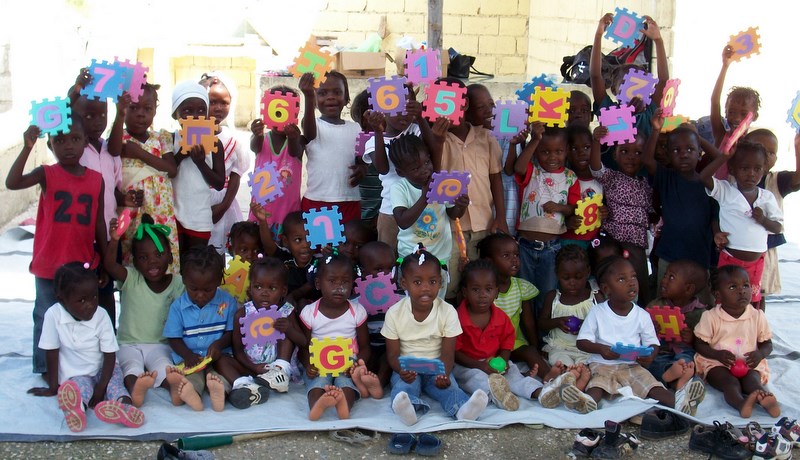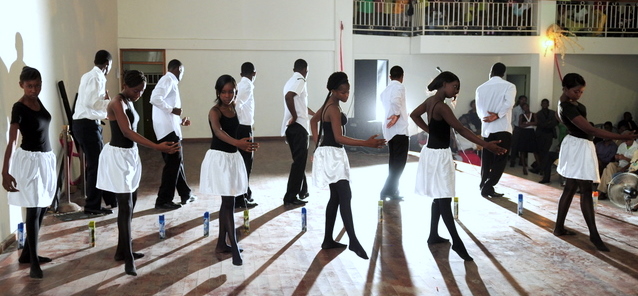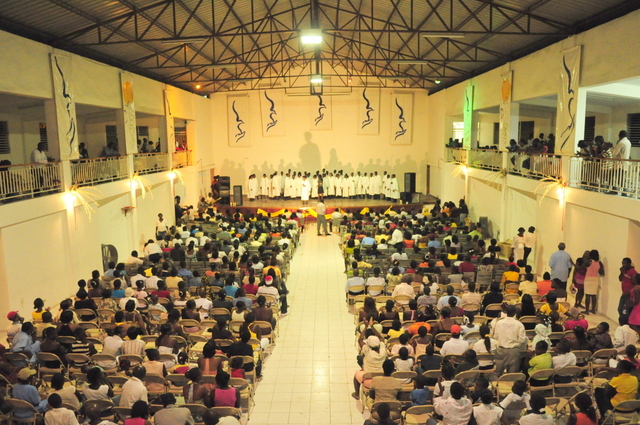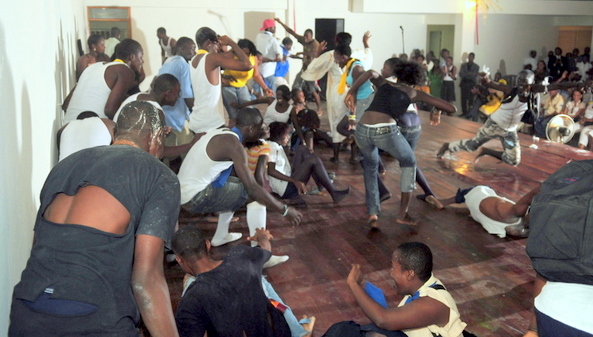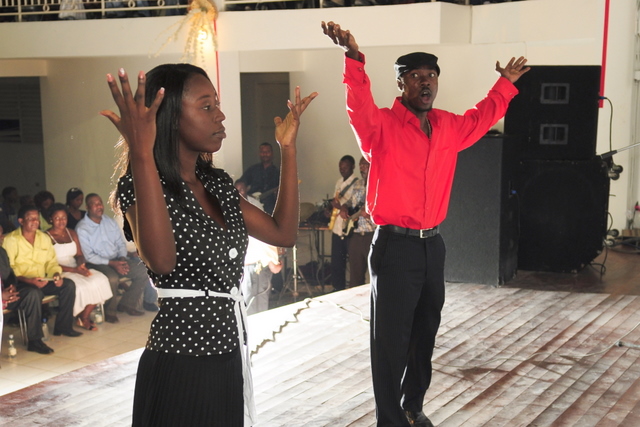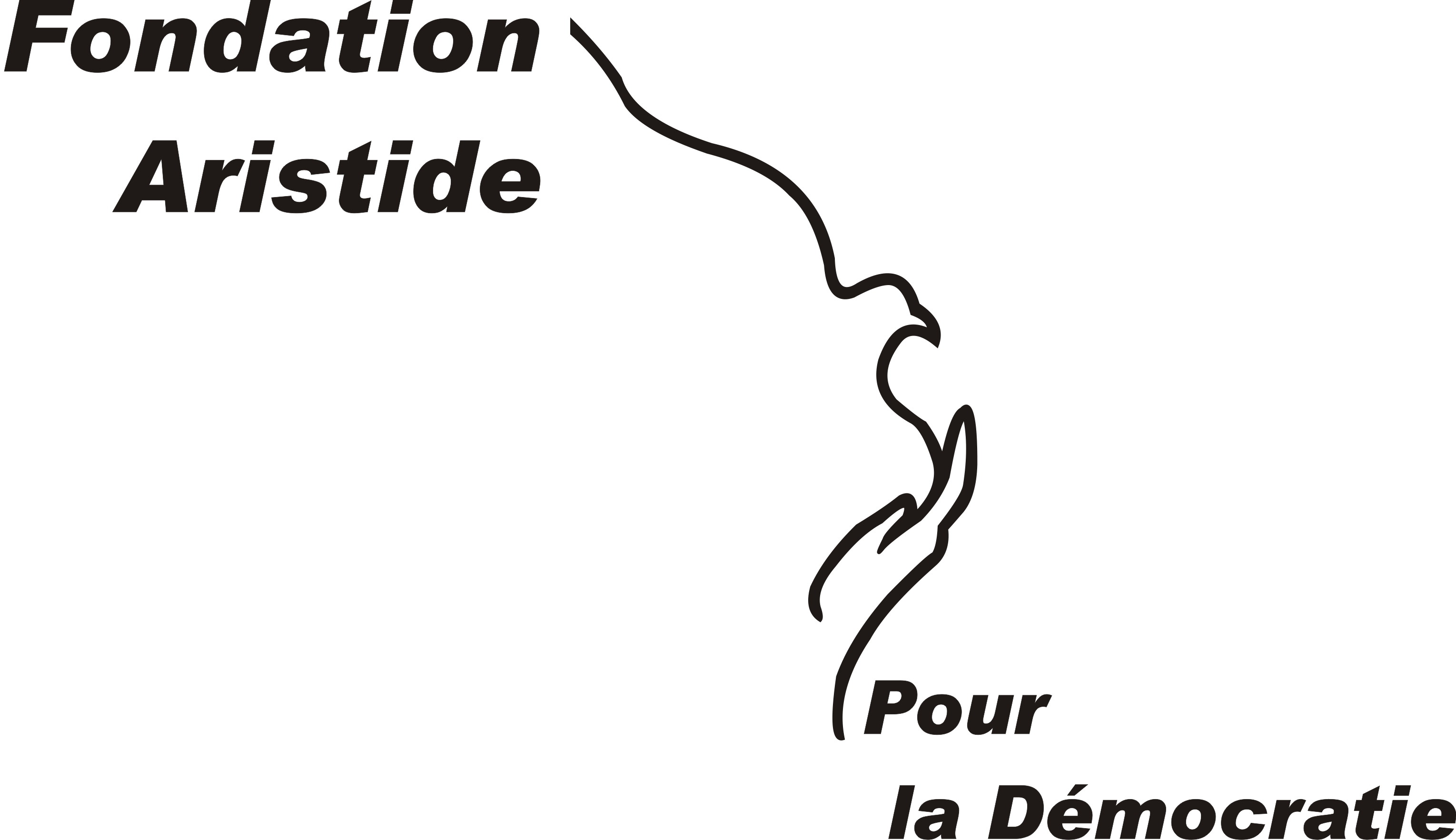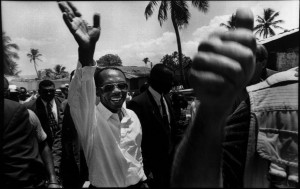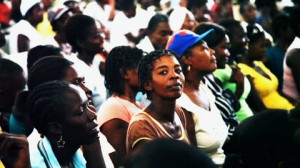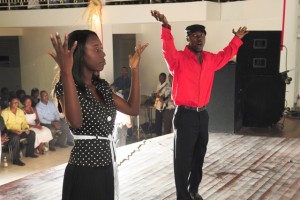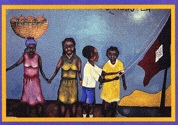“We Want Our Voices To Be Heard”: Democracy in Haiti’s Earthquake Zone
By Laura Flynn
“We are living in the mud. We are wet and we are hungry. Those in charge have left us without hope. If they have a plan we do not know it. We are asking about the future. And we want our voices to be heard, ” Suzette Janvier, a resident of St. Martin (a neighborhood of central Port-au-Prince)
Each Saturday for the past two months a thousand or more Haitian earthquake survivors have met in the auditorium of the Aristide Foundation for Democracy to talk about the future of their country. Since its founding in 1996 the Aristide Foundation, whose auditorium seats up to 3000 people, has provided a place for grassroots activists and ordinary Haitians to come together to debate and discuss national issues. In response to the earthquake the Foundation is sponsoring weekly public forums in which participants tell their stories, talk about the conditions of their lives, and describe their needs; they receive training or information on the current situation and on their rights under the Haitian constitution, and the United Nations principles on Internally Displaced People; and together presenters and participants brainstorm and discuss actions that can be taken to make their voices heard. Each forum has drawn between 900-1500 participants; the majority of those attending are living in spontaneous settlements across the earthquake zone–as are the majority of the citizens of Port-au-Prince. Delegations come from other parts of the country as well, particularly the South and Southeast – Jacmel and Les Cayes –which were also hit hard by the quake.
Participants at AFD forums have offered vivid testimony about conditions of life in Port-au-Prince since the earthquake. Now that the rains have begun, people describe spending the nights “domi pandeye,” (sleeping while balancing upright), standing under their plastic sheeting because there is no room for everyone to be sheltered and lie down, and because water floods the tents. During the rainy season, which has already begun, but will intensify in May, it rains nearly every night. In the morning the sun blazes, the heat under the plastic sheeting—which is all most people have to protect themselves—is stifling. They are now living in “labouye” (the mud) 24 hours a day, in camps almost uniformly lacking in latrines, or other sanitation.
More Mobile School Photos
These photos are from the AFD Mobile School at Carradeux, (near the dormitories of the Medical School of UniFA). Over 1000 families have taken refuge there. The Aristide Foundation is currently working with other aid agencies to try to create more durable temporary housing for the people at Carradeux. The mobile schools, which opened in late February, serve 500 children at this refugee site alone. Here are some pictures of arts and crafts activities the kids have been doing the past couple of weeks.
A Cathartic Easter Celebration
On April 4, 2010, Easter Sunday, Kolonb Dor, the choral and dance troupe of the Aristide Foundation offered a concert at the auditorium of the AFD, attended by 1250 people.
Kolonb Dor was founded in 2008, when a group of students in the Computer School of the AFD asked to form a performing arts initiative within the Foundation. The group has since evolved into a forty-person chorus and dance troupe, who perform at many Foundation events and produce two yearly benefit concerts – one at Christmas, one at Easter. This year, with Easter falling less than three months after the quake, with the whole country still on its knees, the members of Kolonb Dor and everyone at the AFD, felt we had to go forward with a cultural event on Easter Sunday, which could symbolize a renewal of life and hope.
Tickets were distributed primarily to women living in refugee camps in Port-au-Prince and its environs – over 1,200 of whom gathered for an afternoon of music, dance and theater.
The emotional highlight of the afternoon came when Kolonb Dor performed a requiem for those lost in the earthquake written by Farah Juste, and first performed at a funeral mass organized by the AFD at Titanyen (the mass burial sites) two weeks after the quake. Kolonb Dor opened the requiem with a dramatic on-stage re-enactment of the quake, followed by the song itself, which offers a libera (an opening of the doors to the next world ) for all those who died–unnamed and unmarked — in the quake. Audience members found the presentation powerful, jarring, but also emotionally cathartic. The piece was so powerful, in fact, it was shown in its entirety on three of Haiti’s main television stations repeatedly over the next few days. This represents one of the first organized cultural responses to the tragedy.
At the close of the program Toussaint Hilaire announced that all funds raised by the concert would go to support the Mobile Schools program of the AFD. A passing of the hat followed – with many present contributing what they could – a gourde, five gourdes—to support their children, or their neighbors children in the Mobile Schools. A total of 51,000 gourdes was raised (about $1500US).
We salute the young people who put this concert together. We look forward to working with them and others to support artistic and cultural responses to the January 12 earthquake which can aid in the spiritual recovery of the country.

